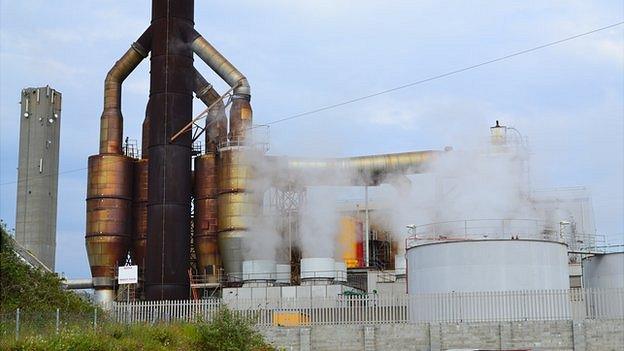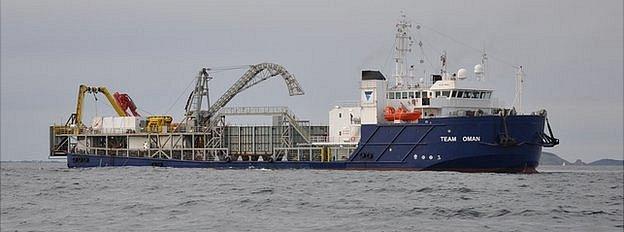Guernsey Electricity gas emissions 'rise dramatically'
- Published

Guernsey Electricity expects to continue producing most of the supply until at least the end of the year
The amount of carbon dioxide (CO2) produced by generating electricity in Guernsey rose dramatically in 2012.
The figures released by the States, external show 158.0kt of CO2 equivalent was produced by the island's power station, the highest level since 2000.
The rise was caused by more on-island production due to the failure of the undersea cable to Jersey in April 2012.
It had allowed 80% of the island's supply to be imported and was out of action until October of the same year.
Even when the cable was restored only 30% of supply could be imported because of the failure of a cable between Jersey and France.
Bob Beebe, Operations Director, said once the Normandy 3 subsea cable was installed between Jersey and France, and commissioned, low carbon energy imports would return back to about 80%, compared with 30% at present.
"This is expected to be at the end of 2014 or early in 2015," he said.
Mr Beebe said the eventual replacement of the EdF 1 cable, which failed in 2012, would further increase the level of import capacity.
Supplies from France are 30% hydro generation and 70% nuclear.
Mr Beebe said: "Low carbon imports not only reduce hydro-carbon emissions created on-island but the overall amount of carbon produced to supply the island with electricity."

It took six months for the undersea cable to be repaired and involved the use of a specialist vessel
The increase in greenhouse gas emissions from electricity generation, a third of all emissions, drove an overall rise in CO2 emissions - 454.5kt in 2012 compared to 365.8kt in 2011.
The second biggest producer of emissions was transport, which created 100.5kt of CO2.
Under the Kyoto Protocol, external Guernsey was set a target of reducing greenhouse gas emissions by 12.5% compared to 1990 levels. Guernsey's 2010 to 2012 average was a 19.5% decrease.
A States Energy Policy Group spokesman said: "It's reassuring that we still managed to meet the Kyoto target, despite the effects of failure of the electricity link with France.
"It is clear managing the way we generate electricity in the future is going to play a key role in controlling the island's emissions."
- Published23 July 2013
- Published27 June 2013
- Published29 May 2013
- Published21 February 2013
- Published29 February 2012
- Published25 February 2011